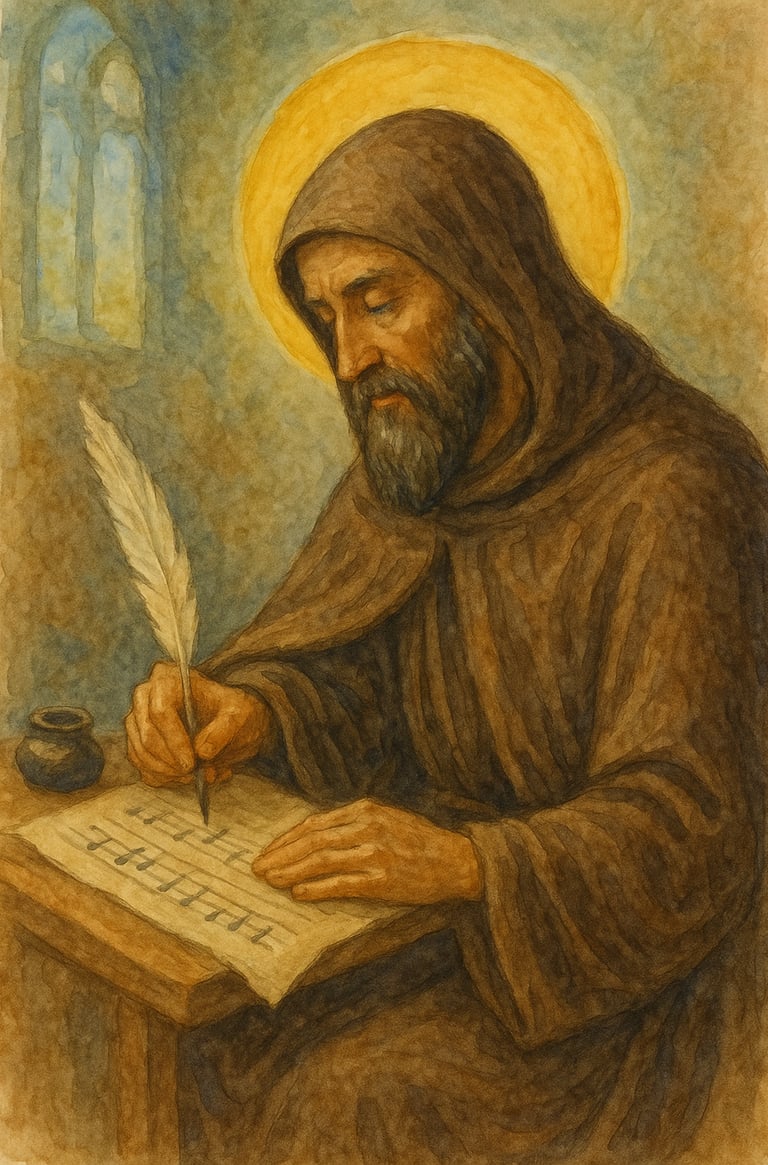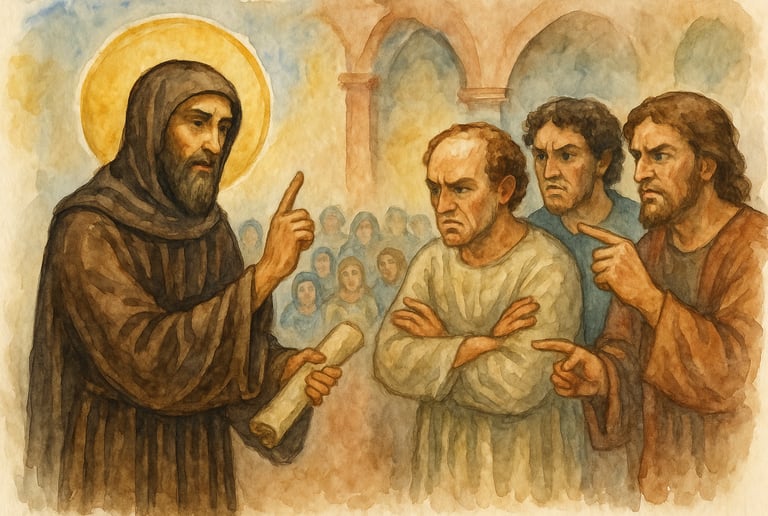Saint Ephrem the Syrian
Deacon | Doctor of the Church | Harp of the Holy Spirit
Halo & Light Studios
6/9/20252 min read


Click here for a reel of Daily Dose of Saints and Faithful Art:
https://youtube.com/shorts/ZG-CptWe2yg?si=md3H5-MKqyMt-pMh
In a time when heresy threatened to fracture Christian unity, St. Ephrem the Syrian stood as one of the Church’s most eloquent defenders—not from a pulpit or throne, but from the humble service of the diaconate. Born around 306 AD in Nisibis (modern-day Turkey), Ephrem chose a life of chastity, simplicity, and service. He never sought ordination to the priesthood, believing the diaconate to be the perfect station for proclaiming truth with both conviction and humility.
What made Ephrem a singular force in the early Church was his profound ability to wield poetry and music as instruments of apologetics. While others debated, Ephrem sang. His more than 400 hymns, biblical commentaries, and theological poems were written to refute heresies—especially Arianism (a 4th-century heresy that denied the divinity of Jesus Christ by teaching that He was a created being, subordinate to God the Father, and not co-eternal or consubstantial with Him) and Gnosticism (a heresy that claims salvation comes through secret knowledge (gnosis) and typically denies the goodness of the material world, often rejecting the full humanity and divinity of Christ) —and to catechize the faithful in the mysteries of the Incarnation, the Eucharist, and the Trinity.
Ephrem’s hymns were not just liturgical adornments; they were doctrinal weapons, rich in Scripture and orthodoxy, crafted to reach hearts through beauty. He understood that truth must not only be defended but also loved, and that beauty has the power to lead souls to belief. His writings made the faith accessible to the illiterate and compelling to the seeker, blending clarity with reverence in ways that theological treatises often could not.
It is no surprise, then, that Pope Benedict XV named him a Doctor of the Church in 1920—one of the few deacons to be honored with this title. His life is a living rebuttal to the claim that reason and faith, art and doctrine, cannot coexist. Ephrem harmonized them all in service of Christ.
“The words of hymns are a veil that covers the brightness of the mysteries.” — St. Ephrem
As baptized Christians, we must learn from his example: defend the truth boldly, but present it beautifully. Engage the mind, but don’t forget to stir the heart. In a world saturated with noise and relativism, the Church still needs poets who proclaim the Eternal Truth with song.
May we, like St. Ephrem, become harps of the Holy Spirit—tuned to both truth and love, ready to echo the song of the Gospel.
An excerpt from St. Ephrem's “Hymns on Faith:"
On a certain day a pearl did I take up, my brethren;
I saw in it mysteries pertaining to the Kingdom;
Semblances and types of the Majesty;
It became a fountain, and I drank out of it mysteries of the Son.
I put it, my brethren, upon the palm of my hand,
That I might examine it:
I went to look at it on one side,
And it proved faces on all sides.
I found out that the Son was incomprehensible,
Since He is wholly Light.
In its brightness I beheld the Bright One Who cannot be clouded,
And in its pureness a great mystery,
Even the Body of Our Lord which is well‑refined:
In its undividedness I saw the Truth Which is undivided.


